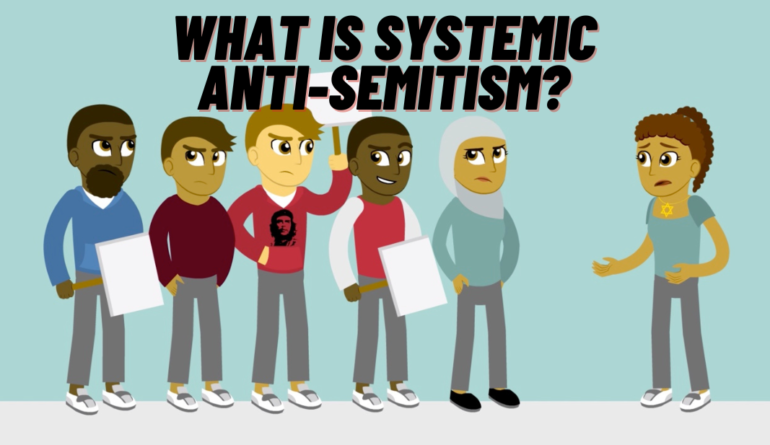Part one of a two-part video breaking down how anti-Semitism isn’t just a synonym for “Jew hatred” but actually a system of oppression with a unique function in society.
Unlike systemic racism, anti-Semitism doesn’t push Jews to the bottom of society but rather to the middle. Jews are granted very visible but conditional inclusion and upward mobility that often forces us to participate in the exploitation of other oppressed groups. This isolates Jews from other minority communities and forces a dependency on the power structure.
According to Aurora Levins Morales, Jews were first pushed into the “middle agent oppressor” role in feudal Europe in order to distract those at the bottom of society (the peasants) from the injustices of the system they were living under. Rather than take out their frustration on the nobility, peasants would often lash out at local Jews who served as representatives of an unjust system in their communities. Jews would often feel no choice to participate in this arrangement due to a deep sense of vulnerability and need for security that only the feudal lords could provide.
This role has taken a new form in American society but essentially operates the same way.
Issues that are addressed in this video:
-The theory of “middle agent oppressor” put forward by Aurora Levins Morales
-How anti-Semitism differs from other systems of oppression
-How Jewish upward mobility & conditional whiteness have positioned Jews in the United States
-How feelings of vulnerability prevent Jews from breaking free of anti-Semitism





